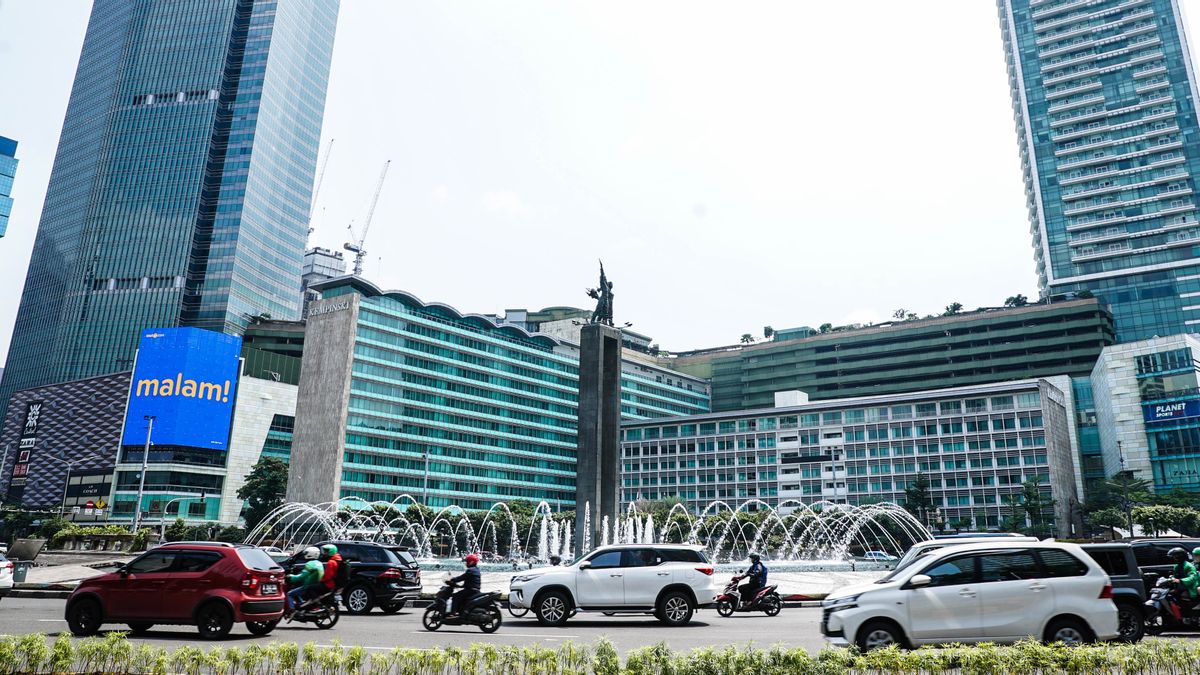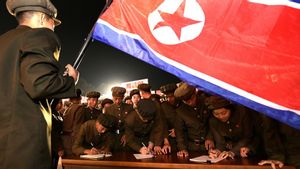JAKARTA - The outbreak of the corona virus or COVID-19, which is increasingly widespread, has had a negative impact on the global economy in 2020. This has driven the global economy to be haunted by uncertainty regarding future economic growth projections after the end of this outbreak.
Head of the Fiscal Policy Agency (BKF) of the Ministry of Finance (Kemenkeu) Febrio Nathan Kacaribu said that the world economy is predicted to slow down very significantly, along with the uncertainty amid the COVID-19 pandemic.
This uncertainty, said Febrio, also applies to Indonesia. The reason is, it is not yet known the extent of the difficulties that await. Moreover, Indonesia's real sector is already in decline. Meanwhile, the manufacturing sector is still contracting.
"2021 is still full of uncertainty. Indonesia sees a rebound in 2021. But it really depends on what happens in 2020, whether we can hold on to 2.3 percent economic growth or lower. We hope it will not be lower. The risk remains, and we will try to avoid it, "he said, in a virtual discussion entitled 'Indonesia Macro Economic Update 2020', Jakarta, Monday, April 20.
He added that the performance of the real sector in the country has been significantly affected. Reflecting on the United States (US), the unemployment rate is quite high.
"China has never been very negative like this, (but) we hope they can rebound. But whether it will be sustainable or not is not yet certain," he continued.
Febrio estimates that the second quarter of 2020 will be the culmination of the crisis that Indonesia will face due to the COVID-19 pandemic.
"Hopefully after that we will rebound. That will be determined by what happens in the next few months (June-July)," he said.
Perppu is the Fast Key to Handling COVID-19
Febrio said that the economic crisis that will be faced by Indonesia due to COVID-19 is in sight. Therefore, the government will put in extra efforts, one of which is the implementation of Perppu No.1 / 2020.
The government, said Febrio, has also worked hard to reduce the negative impact of COVID-19 on the economy with stimulus I, II and III. Even though stimulus I is no longer relevant at this time, he said Indonesia is trying hard with all its limitations.
"Not only for recovery, but also for avoiding a deep recession in the second quarter of 2020. Do not let the crisis be prolonged," he said.
Febrio revealed that the government had taken quick steps to anticipate the negative impact of this outbreak so that it would not deepen. He said the government had learned from the 1998 and 2009 crisis cases.
"Perppu No. 1/2020 is carried out in one month, there are quick and extraordinary steps. It needs quick and anticipatory steps in compelling conditions. The DPR has agreed, all move together quickly," he explained.
The English, Chinese, Japanese, Arabic, and French versions are automatically generated by the AI. So there may still be inaccuracies in translating, please always see Indonesian as our main language. (system supported by DigitalSiber.id)













